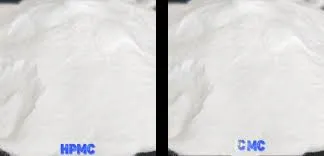
Dec . 13, 2024 08:03 Back to list
Exploring the Diverse Applications of HPMC in Modern Industries and Innovations
Exploring the Applications of HPMC in Various Industries
Hydroxypropyl methylcellulose (HPMC) is a versatile cellulose ether that has garnered significant attention across various industries due to its unique properties. This synthetic polymer is derived from natural cellulose through a series of chemical modifications, endowing it with remarkable features such as solubility in cold water, gel-forming capabilities, film-forming properties, and thermal stability. These attributes make HPMC an essential ingredient in pharmaceuticals, food production, cosmetics, and construction, among other sectors.
Pharmaceutical Applications
In the pharmaceutical industry, HPMC is widely used as an excipient in the formulation of tablets and capsules. One of the primary benefits of HPMC is its ability to control the release of active pharmaceutical ingredients (APIs). By modifying the viscosity and concentration of HPMC, formulators can create sustained-release formulations that prolong the therapeutic effect of medications, enhancing patient compliance. Moreover, HPMC serves as a binder in tablet formulations, ensuring uniform distribution of active substances and improving the mechanical strength of tablets.
Another critical application of HPMC in pharmaceuticals is in ophthalmic drug delivery systems. Due to its high water retention capacity and biocompatibility, HPMC is used in eye drops and other ocular preparations, providing lubrication and enhancing the bioavailability of drugs. Additionally, HPMC is an essential component in controlled drug release systems, enabling the development of innovative drug delivery platforms such as hydrogels and nanocarriers.
Food Industry Uses
HPMC has found various applications in the food industry, primarily as a food additive and thickening agent. Its ability to form gels and emulsions makes it ideal for stabilizing sauces, dressings, and dairy products. HPMC acts as a thickener in gluten-free formulations, providing structure and texture to baked goods. In the production of gluten-free bread, HPMC helps retain moisture, improving the crumb structure and shelf life of the product.
Moreover, HPMC serves as a fat replacer in low-fat and reduced-calorie food products. By mimicking the mouthfeel and texture of fats without the added calories, HPMC enables food manufacturers to create healthier alternatives without compromising on taste. Its application extends beyond savory items to include desserts and ice creams, where it helps provide a creamy texture while maintaining product stability over time.
hpmc applications

Cosmetic Sector Contributions
In the cosmetics industry, HPMC is recognized for its thickening and film-forming properties, making it a popular ingredient in lotions, creams, and gels. It helps improve the texture and spreadability of cosmetic formulations, enhancing the overall sensory experience for users. Additionally, HPMC acts as a stabilizer in emulsions, preventing the separation of oil and water phases and ensuring a uniform product.
HPMC is also prevalent in hair care products, where it provides hold and styling properties without making the hair stiff or sticky. It is commonly used in hair gels and mousses to achieve desired styling effects while maintaining hair flexibility and shine.
Construction and Building Materials
In the construction industry, HPMC plays a crucial role as an additive in cement and tile adhesives. Its water retention properties ensure that the adhesive maintains workability and allows for extended open time. HPMC improves the adhesion of cementitious materials to various substrates, enhancing the durability of construction projects. Furthermore, HPMC enhances the performance of plaster and mortar by providing better control over viscosity, workability, and application.
Conclusion
In conclusion, hydroxypropyl methylcellulose is an indispensable ingredient across a wide range of industries. Its unique properties enable innovative formulations and applications in pharmaceuticals, food production, cosmetics, and construction. As research continues to unveil new uses and benefits of HPMC, its significance in various sectors is likely to grow, heralding advancements in product development and performance. Whether enhancing drug delivery systems, improving food textures, or contributing to sustainable building practices, HPMC stands out as a multifunctional polymer that adapts to meet the evolving needs of modern industries.
-
Versatile Hpmc Uses in Different Industries
NewsJun.19,2025
-
Redispersible Powder's Role in Enhancing Durability of Construction Products
NewsJun.19,2025
-
Hydroxyethyl Cellulose Applications Driving Green Industrial Processes
NewsJun.19,2025
-
Exploring Different Redispersible Polymer Powder
NewsJun.19,2025
-
Choosing the Right Mortar Bonding Agent
NewsJun.19,2025
-
Applications and Significance of China Hpmc in Modern Industries
NewsJun.19,2025







